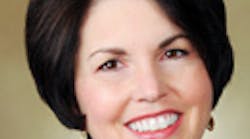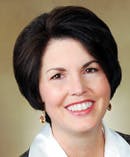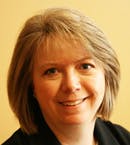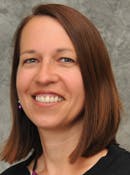Minnesota hygienists describe the benefits of earning an advanced degree
The master's degree is often touted as a step forward for hygienists interested in expanding career choices. Three dental hygienists shared with RDH magazine the reasons why they sought a master's degree from the University of Minnesota, and how they perceive the degree will assist with future plans. Here are their stories.
Brenda L. Armstrong, RDH, MDH
After raising a family and 24 years of clinical dental hygiene practice, I knew it was time for professional change. I began the journey of self-discovery and evaluation by talking to career coaches, participating in personality and interest inventories, and re-evaluating what would make me happy professionally for the next 25 years.
At the time, I was living in a rural Minnesota town that was struggling with access to oral care issues for the underserved. While observing these dynamics, I realized that my passion for dental hygiene had never wavered and that I wanted to participate in educating future dental professionals, hoping to inspire students in future civic engagement to address the access to care issue. My personal motivation stemmed from the love of learning, the desire for self-improvement, and wanting to participate in the growth of the dental hygiene profession through academic activities.
Dental hygiene has been a vehicle for lifelong learning. I graduated from Weber State University with an associate's in dental hygiene in 1984 and a bachelor's in dental hygiene in 1999. I began the master's of dental hygiene program at the University of Minnesota in May 2008, graduating in January 2010.
The master's degree has allowed me to not only change my career path, but to follow my personal passions. As an educator, I have the opportunity to participate in a wonderful dynamic each day in the dental hygiene academic setting. Students first learn the concepts and theory of dental hygiene in the classroom, with experiential learning occurring in the clinic setting. It is very gratifying to watch a student move from knowledge to application, and finally to synthesis of professional, preventive oral care.
Adding to this dynamic, a patient from the community, who most often greatly needs oral care, is provided a service that improves his or her health. Both the student and the patient benefit from the experience, and I am fortunate enough to be the academic dental hygiene professional that facilitates the learning and service. In addition, I teach the dental hygiene public health courses. It has been very rewarding to facilitate community partner relationships with a goal to teach and improve the access to oral care issues through service-learning.
I chose the graduate dental hygiene program at the UMN Dental School because it is well regarded and has a long history of demonstrating success among students, faculty, and research. In addition, I wanted to participate in a program that would allow me to benefit from face-to-face instruction and academia socialization delivered in an atmosphere of proven achievement. I knew that UMN would provide a well-balanced educational experience with research, clinical, and didactic teaching provided by dental hygiene academic leadership.
Little did I realize just how important my educational experience would be as I accepted my first position in academia to serve as assistant professor and clinic coordinator, opening a new dental hygiene program at Thomas Nelson Community College in Williamsburg, Va. Immediately, I was given the task of developing program competencies, clinic protocols and policies, curriculum and courses, and purchasing equipment and supplies. Furthermore, as a dental hygiene department team member, I was prepared by my education to contribute to the important accreditation documentation and department self-study.
Success in obtaining my master's in dental hygiene was possible by having wonderful mentors at the UMN, a supportive family, and a personal attitude to persist when it seemed difficult. I obtained my associate's in my twenties, my bachelor's in my thirties, and my master's in my forties. I'm looking forward to the next decade to fulfill my quest for lifelong learning.
Kim Johnson, RDH, MDH
My career as a dental hygienist began in 1979. I graduated from the University of Minnesota with a graduate dental hygiene degree. I had always hoped to complete my bachelor's degree but life happened; marriage and children became my priorities.
I worked in a few part-time dental hygiene positions and eventually found a practice I would call home for 20 years. I traveled to the Ukraine several times with a foundation my employer was involved with, bringing dental education and needed care to those who had no hope, the orphans. I worked for a doctor who also had a passion to bring dentistry to those in need of primary dental care. He encouraged me to provide outreach to underserved populations in our community. We began to see patients in his practice from several local group homes. We partnered with the group home coordinator to educate the caregivers and to see their patients pro-bono, based on their needs, not their insurance coverage.
When my youngest child was leaving home, I sought an opportunity to go to the University of Minnesota to complete my bachelor's degree. My family was very supportive, so I went back to school with my son! I found I loved learning for the sake of learning.
A year later, I was offered an adjunct teaching position at the University of Minnesota Dental School's dental hygiene program. As I became more involved in teaching, I saw the value of obtaining my master's degree. As I began investigating various master's degree programs offered throughout the country, the University of Minnesota announced it was going to begin a new master's program with an emphasis in education or business. I had been, and continue to be, a supporter of the university, so I anxiously awaited the start of the new program. I was admitted into the first class!
My time in the program was both challenging and rewarding. I was able to put into action the concepts and theories I learned as I was teaching core curriculum courses for dental, dental hygiene, and dental therapy students. The university's program was in its infancy, but it fulfilled my needs. I was able to complete my student teaching requirements in courses I enjoyed, and my thesis involved the use of guided imagery as an adjunctive teaching method in the pre-clinic setting. My master's degree was beneficial even before I completed it!
I continued to teach at the University of Minnesota for a total of seven years. Several months ago, I received a call from a former student who worked for the Health Partners Institute for Education and Research. I was offered a position that incorporates my teaching background with my research experience, and my master's degree was highly valued.
My degree was the catalyst for placing me in a position to bring together my clinical background, teaching experience, and research capabilities. My professional career would not have reached this juncture without obtaining my master's degree in dental hygiene from the University of Minnesota.
Carol Dahlke, RDH, MDH
An advanced degree became my goal when I discovered that a master's degree was needed to teach at the college level. I had begun my career as a clinical assistant professor at the University of Minnesota School of Dentistry after I completed my baccalaureate degree in 2007. The university announced a master's in dental hygiene degree, and I knew that I needed to pursue it.
I was sure that I did not want to limit myself to clinical dental hygiene for the rest of my life. I have always admired people who had advanced degrees, and I wondered if that was something that I could do. I was now working with some wonderful people who had the same belief system that I did. Education was important, and I could not get enough of it. I had people in my life who were supporting me, and I knew that I wanted fulfillment in dental hygiene. The timing was right.
The master's in dental hygiene program offered two tracks, and I was very interested in the business track. I knew that I could teach with any master's degree, so the business track offered me more opportunity. I jumped in headfirst. As a requirement of attending the Carlson School of Management, I took the GRE (the GMAT is now required). This was a daunting test; it gave me a glimpse of what was to come.
I had avoided classes that dealt with numbers as much as I could as an undergrad. Now I needed to take accounting and a graduate level stats class. I found the classes to be very challenging, but exhilarating because I was able to learn the material at the graduate level. The subject content of the marketing and operations classes is information that I now use daily.
My fellow classmates and I became a very close-knit group as we persevered through the program. We did wonder what we were going to do with the information we were learning. It was 2009, and we were in a recession. There were no jobs, especially for those of us in unchartered waters.
I became the first graduate of the University of Minnesota School of Dentistry's Master of Dental Hygiene program. Now what? My intention was to continue teaching at the school. I love the school, and it is such a privilege to teach there. However, life had other opportunities awaiting me. I learned of a position available as a business and clinical consultant with a local dental practice management firm. I was encouraged to apply for it.
I started with Accelerated Practice Concepts in early 2010. My master's degree gave me the confidence to believe in myself. I knew that because I was able to complete a graduate degree I could do anything -- at least it felt that way. My new career has given me opportunities that I never dreamed of. I am able to travel throughout the country. I teach my clients how to provide treatment to their patients so their patients can achieve oral health. My clients (all of whom are periodontists and general practice dentists) learn how to manage their dental practices so everyone can achieve balance in their lives. The community overall benefits as a result of my position. The patients get healthier, the practice gets healthier, the dentist and staff lead balanced, happier lives.
I am able to have financial stability and career satisfaction, and I attribute this to my graduate degree. I am now able to volunteer one day a month at the university as clinical instructor giving back to the school that has given me "a passport to life." RDH
Consider reading:Survey: Dental hygienists scramble for health insurance
Consider reading:Visual (career) enhancement
Consider reading:The changing landscape of the dental hygiene profession









